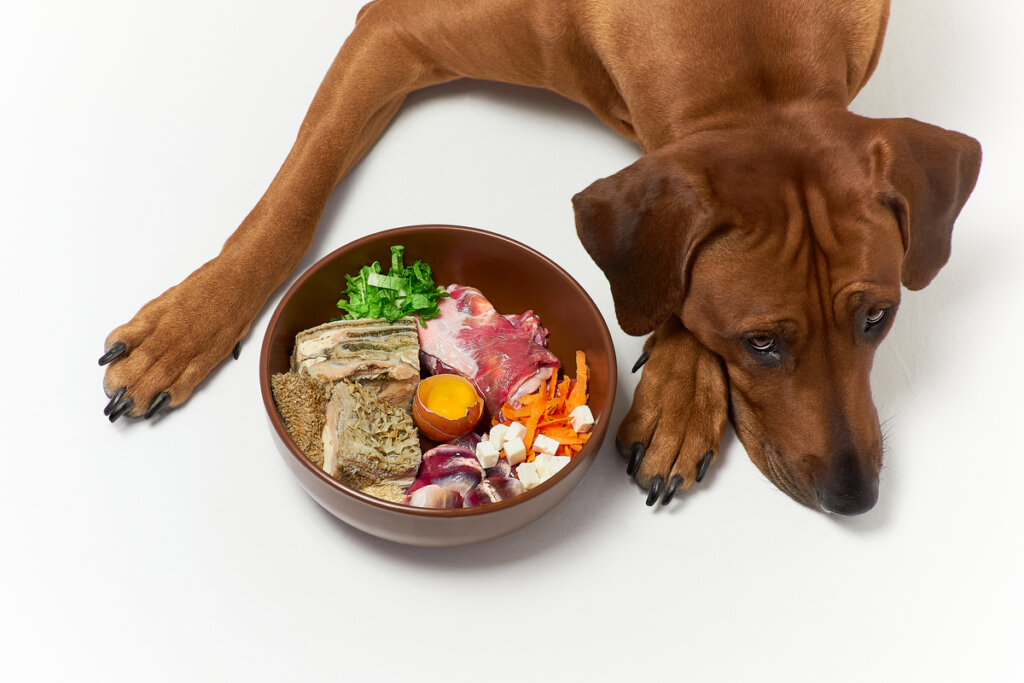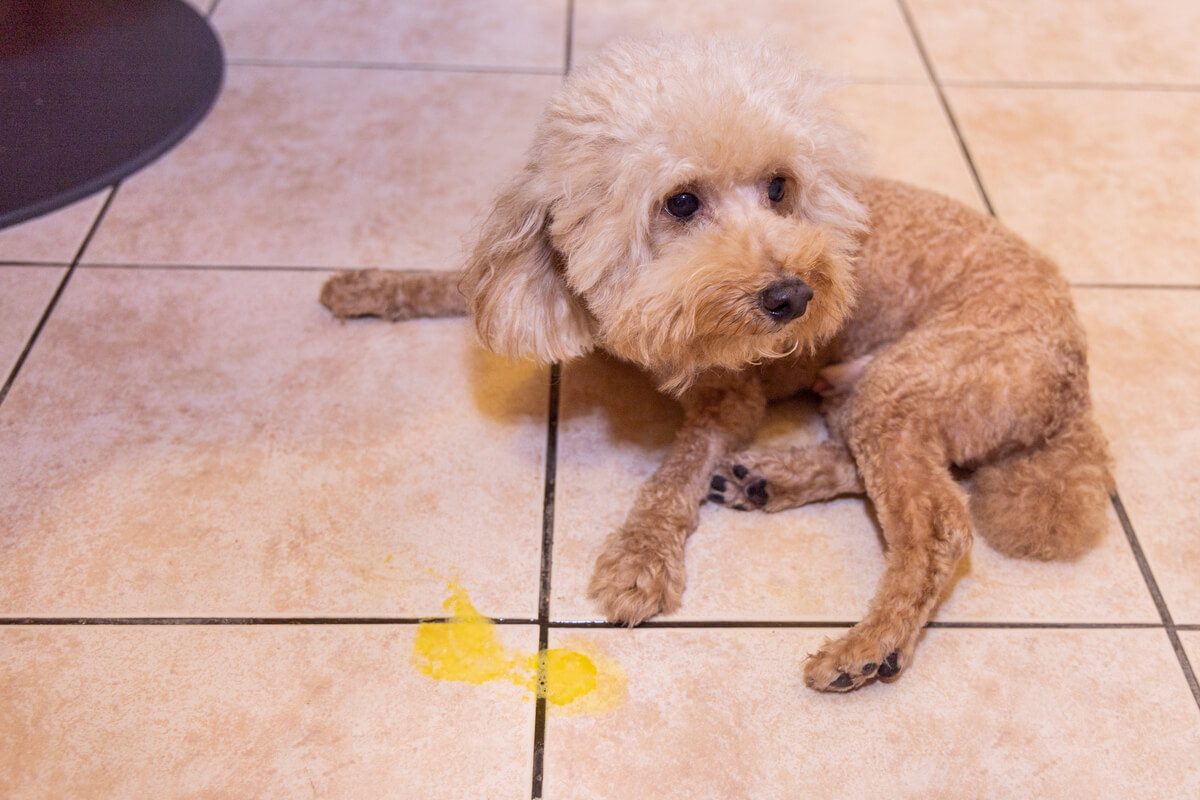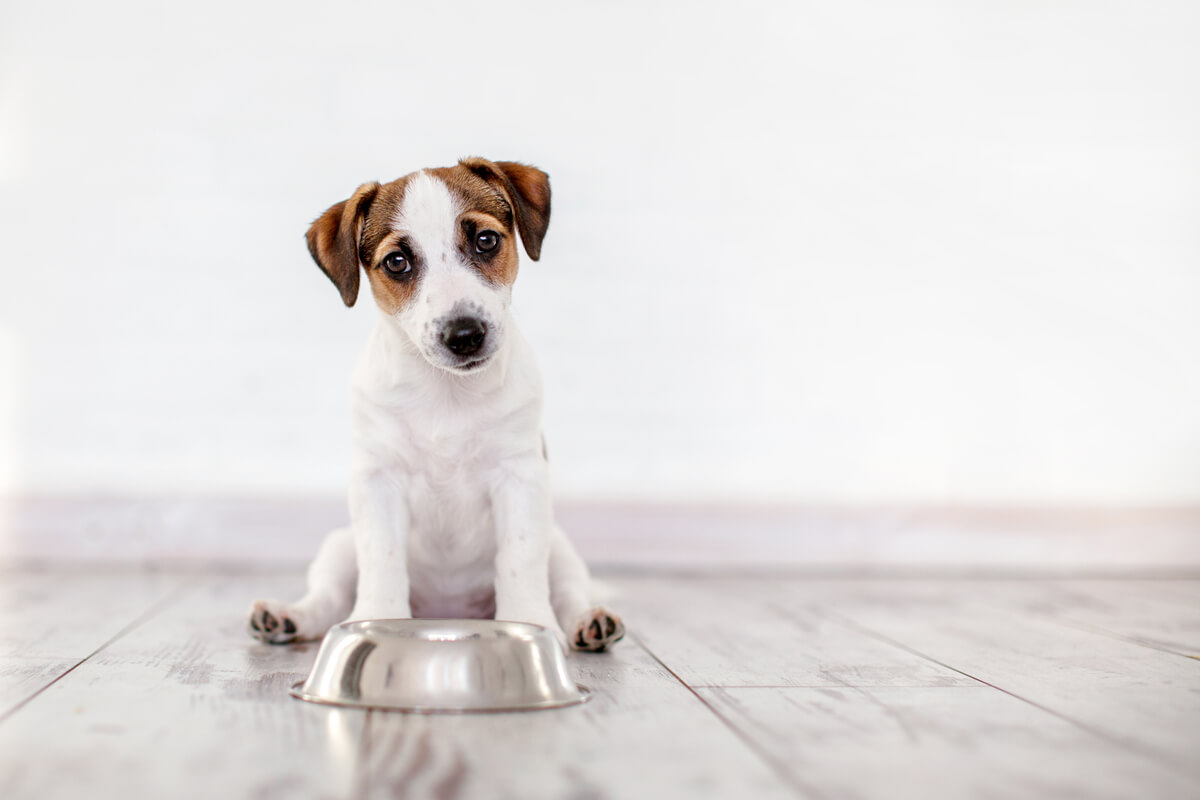My Dog Doesn’t Want to Eat: 10 Causes and What to Do
For a dog to stop eating is a bad sign in any setting. Learn about the possible reasons for canine inappetence with us.

Depending on the breed and age of the animal, a dog may require from 800 to 2300 kilocalories a day. The energy requirement of each canid is obtained with a couple of meals every 24 hours, varying dry foods with moist patés and fresh dishes prepared at home. However, if your dog doesn’t want to eat for whatever reason, they may have an underlying disease.
Dogs need to be fed daily to maintain a stable weight and optimal general health. Therefore, it goes against their own survival instinct to suddenly stop eating. Any of the causes of poor appetite that we’ll show you below justify a visit to the vet. Don’t miss them.
1. Gastritis
Gastritis is defined as an acute or chronic inflammation of the gastric mucosa, that is, of the tissue that lines the stomach. As indicated by the MSD Veterinary Manuals portal, this condition can arise from bacterial infections, parasites, ingestion of foreign bodies, poisons, medications and many other things.
The most common cause of acute gastritis is the ingestion of spoiled food and indigestible objects through the dog’s stomach. This condition resolves on its own in about 24 hours and rarely requires veterinary attention. However, if your dog doesn’t want to eat and vomits often, they may have an autoimmune problem or a serious parasitic infection.
Gastritis causes vomiting and promotes dehydration. If your dog doesn’t improve within 24 hours, take them to the vet.

2. Gastrointestinal obstruction
This may seem similar to the previous condition, but there are distinct differences. In gastrointestinal obstruction, food can’t pass through the intestines normally and accumulates in the tract, either from a physical object plugging the gut, a hernia, or a torsion. These obstructions can be total or partial.
A dog with an obstruction will be listless, lethargic, and with clear signs of pain in the abdominal area. It’s also quite normal for the dog to not want to eat, for it to vomit, and to have diarrhea. Large puppies are more prone to this condition, as they tend to eat large objects out of curiosity.
3. Oral diseases
Sometimes a household dog doesn’t want to eat because their mouth just hurts from doing so. A fallen tooth, an oral tumor or gingivitis – inflammation of the gums – are some of the causes of poor appetite in canids. If, when looking at your pet’s mouth area, you see blood and redness, then it’s most likely that they have a wound or an infection.
4. Medications
As indicated by the American Kennel Club (AKC), some drugs can cause poor appetite in dogs. These include antibiotics, chemotherapy, and certain non-steroidal anti-inflammatory drugs (NSAIDs). Your vet will advise you of the possible side effects of each treatment.
5. Anxiety and stress
Canids are routine animals. They like to go out at specific times of the day, they have their own spaces to protect themselves, and they don’t usually respond well to constant change. Therefore, a dog in an unstable environment will tend to develop anxiety.
If your dog doesn’t want to eat and they’re a recent arrival in your house or you’re on vacation, the answer may lie in the lack of acclimatization to its new surroundings. To avoid this, try to take objects with you that the dog will recognize as familiar, and introduce the changes little by little.
6. Gastrointestinal ulcer
Gastrointestinal ulcers are open lesions that appear in the tissues of the digestive tract. They’re usually caused by systemic pathologies, consumption of toxic agents, chronic infections, and an overproduction of gastric acid.
Sometimes, ulcers develop without noticeable symptoms. However, other dogs with ulcers don’t want to eat, they lose weight very quickly and show clear abdominal discomfort. At the veterinary clinic, heartburn is usually treated so that the ulcer heals on its own.
If the ulcer is so deep that it causes infiltrations of acids in the abdomen, the prognosis becomes very poor.
7. Absence of the owner
Sometimes dogs prefer to wait for their owners to arrive to eat. This doesn’t always show a dependency or attachment problem. Some dogs just tend to wait until “the whole pack” is there before feeding.
8. Inflammatory bowel disease
Inflammatory bowel disease (IBD) is a chronic condition that, in many cases, doesn’t have a specific cause – it’s idiopathic. Almost all dogs with this syndrome have a long-term history of vomiting, diarrhea, and continued poor appetite.
In all cases, it’s an inflammation of the intestinal tissue, which can be preceded by a serious infection or a hypersensitive reaction to certain foods. There’s no cure for IBD, but the patient’s symptoms can be alleviated with the right diet and certain medications.
9. Depression
Although the term “depression” applies only to humans and other emotionally complex animals, dogs can also be extremely sad at some events. According to the VCA Hospitals portal, 36% of dogs have a marked loss of appetite when another dog in the family dies. 11% stop eating altogether.
In these cases, the best thing the owner can do is to try to distract the dog with activities and not to let them wallow in their sadness. However, every living being has the right to mourn for a time, as long as their condition doesn’t turn into an illness.
10. Food preferences
Ultimately, it’s also necessary to take into account that dogs have a predilection for some specific brands and feeds. If you drastically change your dog’s diet and they suddenly stop eating, then it may be because they don’t like their new food, or they may be intolerant to some of its compounds.

As you can see, a dog that doesn’t want to eat usually has an underlying pathology, be it emotional or physiological. Regardless of the cause of the lack of appetite, a situation of this type that lasts more than 24-48 hours should be referred to a veterinarian urgently.

